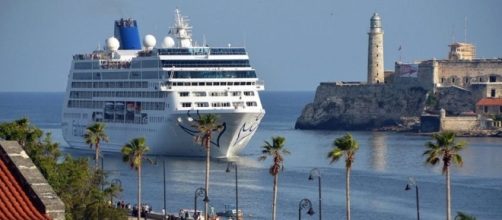Ina few months, major cruise lines will set sail from Port of Tampa to Havana with more than 40,000 passengers spread between 22 voyages from the island nation. These voyages could add more money into Cuba's economy and climb from there. Many of this research and statistical analysis done about these cruise liners and their voyages were done by the U.S. Trade and Economic Council that is based on New York. These figures represent full capacity of cruise liners and the amount of passengers they can carry in total according to council president John Kavulich.
Cruising Cuba
Royal Caribbean Cruises announced 10 cruises from Tampa on its Empire of the Seas with one night in Havana scheduled for April 30, 2017. The cruise ship can carry 1,602 passengers to and from Cuba with other stops in between. Last week Carnival Corporation announced a 2017-2018 voyaging cruises that include 12 different cruises with one day and one night in Havana starting June 29, 2017 and includes the 2,052 passenger boat Carnival Paradise.
In Cuba, it is a different story, many of these cruises where passengers can buy souvenirs can be done with a private or state-run business. But the big situation is the fee to dock the cruise liners in Cuba. This fee depends mostly on the size of the boat and then the tourism destinations for passengers according to Kauvlich.
Tourism and educational destinations are often conducted through state-agencies, but any porting costs are paid directly to the Cuban government.
Education Cuba
While it is still illegal to tour the island nation purely for fun, cruise liners are offering these cruise options under the educational reason for visiting Cuba. So while the cruise boats are docked in Havana for either a day or a night, all passengers will be given a learning component to their daily activities. So yes, passengers can snorkel or lie on the beach, but they would have to do an educational part of the tour which could include history on the Bay of Pigs invasion or the rise of Fidel Castro and the impact of the embargo act.

